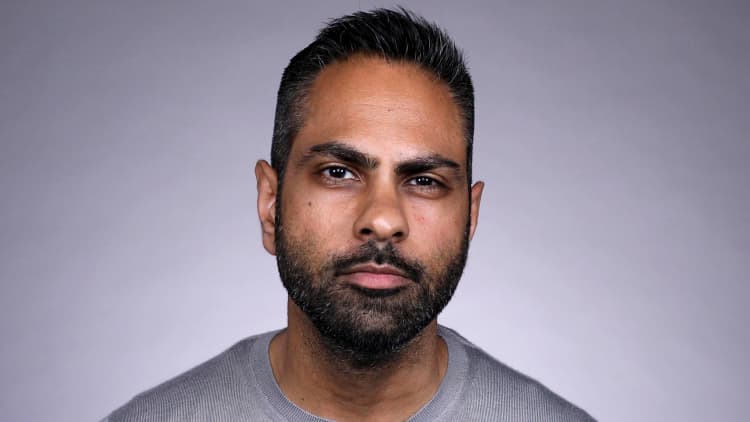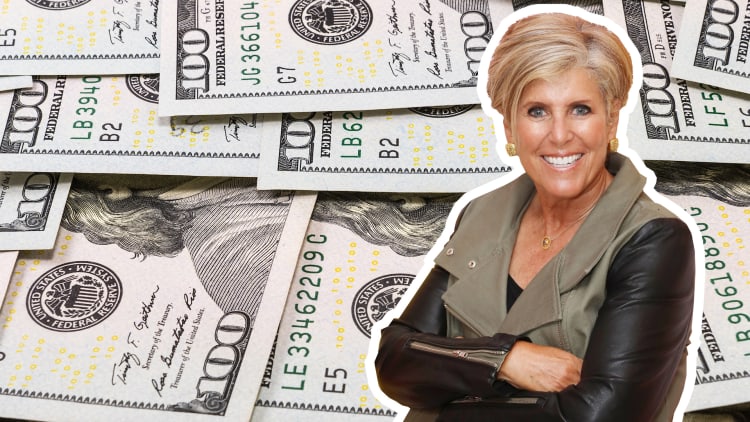The number of Fidelity 401(k) plans with a balance of $1 million or more hit 180,000 in the first quarter of 2019, up from 133,800 at the end of 2018. That's a 35% increase.
The data is based on information from 16.9 million Fidelity 401(k) retirement accounts.
These 401(k) millionaires are, on average, 60 years old with a balance of $1.44 million, and, "in large part, everyday people who are just taking advantage of their 401(k)," Katie Taylor, vice president of thought leadership at Fidelity Investments, tells CNBC Make It. "You don't need to make a million to save a million."
That said, those with seven-figure portfolios do have a few things in common, she notes. Here are three habits and strategies that have worked for them and could work for you.
401(k) millionaires save early and consistently
Time is on your side when you're young. The sooner you start putting your money to work, the less you'll have to save each month to reach your goals, thanks to the power of compound interest.
If you start at 23, for instance, you only have to save about $14 a day to be a millionaire by 67. That's assuming a 6% average annual investment return. If you start at 35, on the other hand, you have to set aside $30 a day to reach seven figure status by 67.
Those with $1 million or more in their 401(k)s are "people who have been saving for a long period of time," says Taylor. "They start their career, they get enrolled in their plan really quickly and they save. No matter what else is going on in their financial life, they're making it a priority to save for the future."

401(k) millionaires take full advantage of the company match
If your company offers a 401(k) plan, they may also offer a 401(k) match, which is essentially free money, but it's up to you to take advantage of it.
These programs are pretty straight forward: Your employer will match whatever contribution you put towards your 401(k) up to a certain amount. For example, if you choose to put 4% of your salary directly into your account, your employer will put that same amount in as well, in effect doubling your contribution. And whatever money your company contributes doesn't count towards the IRS contribution limit.
Note that, depending on where you work, the match sometimes comes with stipulations, like you may have to work at the company for a certain amount of time before it goes into effect.
Not surprisingly, the 401(k) millionaires are "generally taking full advantage of any matching contributions that their employer is offering so they're not leaving any free money on the table," says Taylor.
401(k) millionaires invest their money in the right places
Saving early and consistently is key, but making sure your money is invested appropriately for your age, risk tolerance and time horizon is "a really important piece of the puzzle," says Taylor.
If you're young and just starting your career, for example, you can afford to take on more risk, says Taylor, adding: "It probably makes sense to have a higher percentage of the money that you're contributing going into an equity-based mutual fund." As you get older and start approaching retirement, you'll want to shift towards more conservative investments, like cash and bonds, since you have less time to recover from any market setbacks.
You can also consider investing your 401(k) dollars in a target-date fund, says Taylor. It's a simple, low-cost option that's great for the hands-off investor since it balances your portfolio for you depending on the year you expect to retire.

Finance expert Ramit Sethi also recommends this type of fund: "The computer knows how old you are; it knows roughly when you're going to retire — let's say 65 — and then it creates a nice portfolio for you," Sethi tells CNBC Make It.
"I love these funds for a few reasons," he continues. "No. 1, they are simple. You don't need to pick stocks." Plus, they're "low cost," he says. "It's a great investment, a great way to get started" saving for retirement.
At the end of the day, becoming a 401(k) millionaire "is not reserved for people who make a ton of money or are rich," Taylor emphasizes. "These are everyday people that have implemented a very disciplined, consistent approach to saving — and it's really not that hard: It's getting enrolled, saving as much as you can, building that savings over time and being invested appropriately."
Don't miss: How much money Americans have in their 401(k)s at every age
Like this story? Subscribe to CNBC Make It on YouTube!



